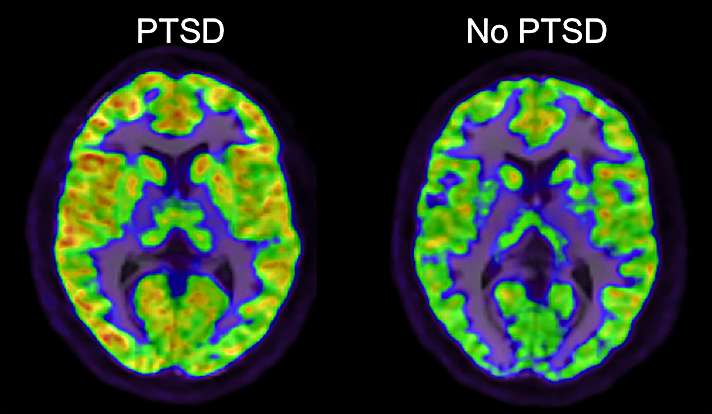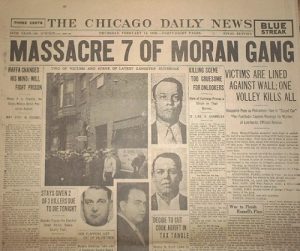Winner of the Fall 2018 StMU History Media Award for
Best Article in the Category of “Military History”
Best Article in the Category of “Science & Technology”
Charles Meyers, a Medical Officer, introduced the term “Shell Shock” to explain symptoms of Post Traumatic Stress Disorder (PTSD) displayed by military after combat in World War I (WWI). Soldiers often experienced symptoms including fatigue, tremor, confusion, nightmares, impaired sight, and impaired hearing. Meyers assumed that these symptoms were caused by the soldiers’ exposure to exploding shells, not necessarily the trauma they were witnessing or going through. In these years, symptoms of widespread PTSD were considered “weak” traits for soldiers by their colleagues and bosses. Even society as a whole started to view these symptoms negatively, which led to the destruction of their relationships after the Shell Shocked soldiers arrived home.1
Military gave Shell Shock victims no sympathy. When soldiers were dismissed from their duties, they were given labels such as “cowardice” or “emotionally weak.” These labels led to soldiers being targeted for abuse from their own side, as well as mock trials in which they were convicted. The pardons they received weren’t honorable, so they were often ashamed of their disorder, which led to more mental issues among the soldiers like depression, anxiety, and even suicide.2

New treatments flipped understandings of how World War I caused drastic changes in the behaviors of these men. Treatment for Shell Shocked victims before Arthur Hurst’s “miracle treatments” were very harsh, as they were often treated with Electroconvulsive Therapy, emotional deprivation, shaming, and solitary confinement. Some of the lesser treatments were hypnosis, massage, rest, and dietary treatments.3
Arthur Hurst primarily used occupational therapy to treat Shell Shocked patients, treating them as humanely and sympathetically as possible. This dignified care allowed for the increased numbers of “saved” soldiers, as they found ways to overcome the abuse and the labels given to them after their dishonorable discharges. Hurst’s treatments became iconic after the Newton Abbott’s Seale Hayne in Devon. Hurst’s approach allowed for 90% of Shell Shocked soldiers to be cured after only a single session.4

Modern day treatments, consist of therapy, as well as new medicines that aid in the control of the symptoms. According to Michael James, a pharmacist, there are Selective Serotonin Reuptake Inhibitors (SSRIs) that block the re-uptake of serotonin in the brain and help with sleep disorders, nightmares, and decreases intrusive thoughts. James also informed me that Serotonin Norepinephrine Reuptake Inhibitors (SNRIs) block the re-uptake of serotonin and norepinephrine in the brain which also decrease intrusive thoughts and provide aid for sleep disorders and nightmares.5
Hurst’s approach led to a change of heart and a consensus to the overall approach by society as a whole. Now, Veterans Affairs, also known as the VA, has a large program that provides aid to veterans with PTSD. However, this evolution of PTSD has not only been beneficial to veterans, but it has also allowed for a more diverse diagnosis of PTSD, in which it is more understood that other people, in addition to veterans, can also experience PTSD. PTSD can be caused from any sort of trauma including car accidents, violent crimes, and domestic violence. Individuals can even develop PTSD from having someone important abandon them as well. The DSM-5 has set a variety of symptoms for PTSD because just like any other disorder, it affects every individual differently. This document allows all individuals to gain access to the tools and help they need to recover from or live with PTSD.6

- Caroline Alexander, “The Shock of War,” Smithsonian Magazine, September 2010, https://www.smithsonianmag.com/history/the-shock-of-war-55376701/. ↵
- “Shell Shock,” BBC Inside Out, March 3, 2004, http://www.bbc.co.uk/insideout/extra/series-1/shell_shocked.shtml. ↵
- “Electroconvulsive Therapy: A History of Controversy, but Also of Help,” The Science Explorer, January 13, 2017, http://thescienceexplorer.com/brain-and-body/electroconvulsive-therapy-history-controversy-also-help; “Arthur Hurst: The Man Who Filmed Shell Shock,” BBC Radio 4, http://www.bbc.co.uk/programmes/articles/4VqPtrjsgcPKtgmYc2M5vXz/arthur-hurst-the-man-who-filmed-shell-shock. ↵
- “Arthur Hurst: The Man Who Filmed Shell Shock,” BBC Radio 4, http://www.bbc.co.uk/programmes/articles/4VqPtrjsgcPKtgmYc2M5vXz/arthur-hurst-the-man-who-filmed-shell-shock. ↵
- Email with Michael James, September 11, 2018. ↵
- Pete Walker, From Surviving to Thriving (Scotts Valley, CA: CreateSpace Independent Publishing Platform, 2013), 13-14. ↵



160 comments
Azucena Cuevas
It is impossible to think people could actually be in denial of trauma caused to veterans/soldiers when they go to war. PTS is a growing and tragic disorder that many people need to learn about. Our soldiers are underappreciated and misunderstood, because people think it is weak of them to have such problems. I really enjoyed the article because it has an image of the brain and the difference in brain activity from those who do have PTS and those who don’t.
Felipe Macias
Veterans and survivors of war have never received the attention and assistance they need. PTSD is real and many times is ignored by everyone due to lack of familiarity. You hate to see things like this happen, but its reality and its something everyone must confront at one point. Having experience something to the point where it is traumatizing for life is something astonishing and worrisome.
Mauro Bustamante
It amazes me to think that someone really thought that going through something so traumatic, such as killing other human beings or seeing friends be killed, would not cause some kind of strain on a human beings brain. My mother would tell me parts in her life where my father had PTSD from the military when he was sent to Africa, and that it took all of her strength just to try and keep him stable through the experiences, had got help and now his fine but, those memories, he said that he still remembers the guns, and killings. This article emphasizes on the affects of PTSD on the human brain and it is very informative of the topic.
Jesus Parker
This shows how far we have come from learning about ourselves. Those soldiers had it rough in World War I. If it was not for them we would not have learned more about this “shell shock” which we now know as PTSD. At least now people now have all the resources available to them if they were to experience PTSD. Thankfully there was a man who cared enough to further the research on PTSD.
Ariana Brown
It’s amazing to see what a long way mental health has come. There are still stigmas but we no longer dishonorably discharge soldiers due to the presence of PTSD and we now have ways of treating it. It amazes me that electroshock therapy was used to treat so many illnesses when it seems so inhumane.
Ilse Amaya
It is heartbreaking to know men who were fighting for their country were labeled as weak and cowards after experiencing PTSD. I had no idea how they discriminated against them after serving with bravery and honor. I am glad someone was able to help these people by creating an explanation and treatment to inform the community about PTSD. Now soldiers will not be marginalized and disregarded based on their mental state, a side effect of war.
Brisella Olivares
It is heartbreaking to hear that their own country called and labeled these soldiers with PTSD as being weak or cowards. It amazes me to think that someone really thought that going through something so traumatic, such as killing other human beings or seeing friends be killed, would not cause some kind of strain on a human beings brain. I am so thankful for the brave men and women who step up and serve for our country, its just a shame this is one of the many burdens that come with being this brave.
Diego Terrazas
I am surprised men were labeled as weak just because they viewed their time in war as traumatic. After living in a war environment after a while, you grow accustomed to it, but that does not mean that person is completely fine. They get accustomed to it in such a way that they expect to hear loud noises and see horrible things, so much that they are left traumatized.
Felicia Stewart
This was a very interesting story to read. As some one that is currently studying psychology, I have learned a lot about post-traumatic stress disorder while in Undergrad. PTSD is a growing problem today and it is unfortunate that so many suffer from this disorder. PTSD was seen as a sign of weakness, which is why it is believed that not as many males are diagnosed than females. Females are diagnosed 2x more than males and it is questioned as too if this is because men are scared of being labeled as ‘weak.’ It is unfortunate that so many people have to suffer from this disorder and there is not near enough resources and help available to those with the disorder.
Amariz Puerta
Knowing about PTSD and the effects I never went into research how people are affected by it and how it can truly hurt ones self. It sad to know the bravest people fighting for our country and the ones that have to go through these kinds of things. This article really helped me gain a better understanding of how these soldiers are effected by war. Im so glad that Hurst was able to find treatment for this unfortunate syndrome.